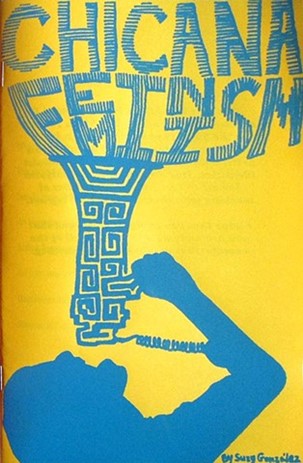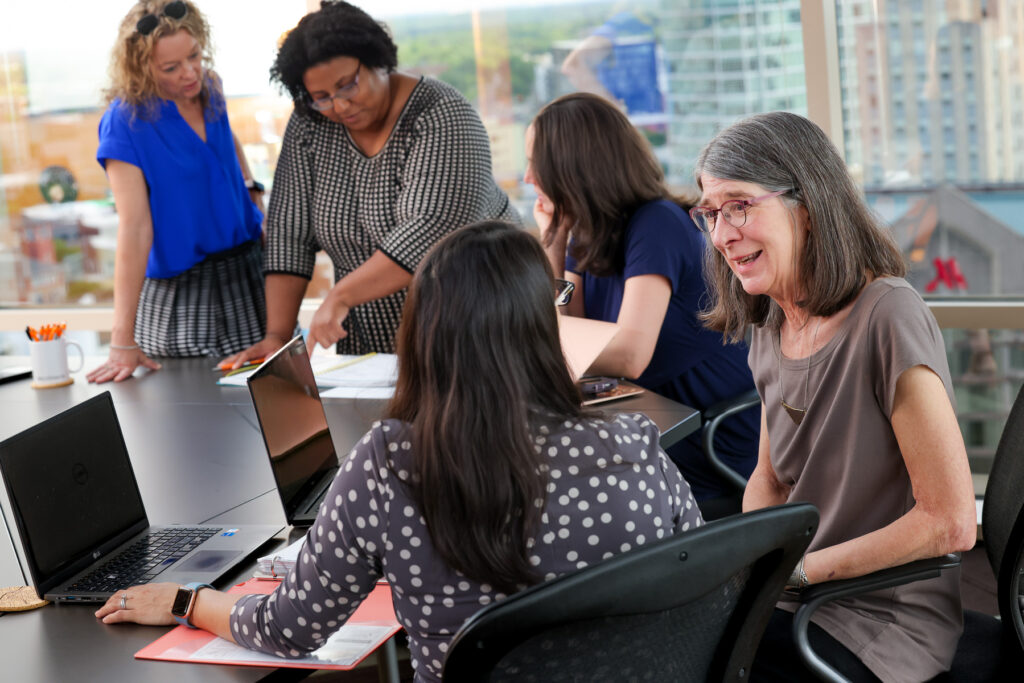The country’s Hispanic population is increasing daily, leading to the incorporation of new languages, traditions, customs, and cultures. While it is important to recognize that the Hispanic population is not monolithic, it is also true that many Hispanic populations share cultural commonalities. One of those commonalities is the Pláticas; I (as Hispanic) have always had pláticas with my family and friends since I was a kid. We have pláticas in the kitchen and living room and before going to bed – we have pláticas all the time, anywhere! These pláticas can be about politics, religion, advice, science, superstitions; the list is endless. Regardless of the topic, I always learned something new from platicar with other people.
What are pláticas?
Hispanics understand pláticas as the everyday conversations we have. Researchers and evaluators have also recognized these conversations as a culturally relevant method for gathering information from Hispanic participants. This methodology emerged from the feeling that traditional research methods, like interviews, did not feel authentic to the Hispanic population and thus had cultural and general limitations when used with these participants (Becerra & Shaw, 1984).
In 1978 Ramón Valle and Lydia Mendoza identified pláticas as a better approach to engaging and interacting with the Hispanic population (Valle & Mendoza, 1978). The difference between pláticas and interviews is that pláticas are reciprocal exchanges; this means that the researcher and the participant are co-collaborators and co-creators of the research process and the outcomes. With interview methods, the researcher needs to be systematic during an interview and “lead” the participant through a series of structured or semi-structured questions. However, the pláticas are unconcerned about objectivity or “leading” the question. Pláticas change the center the research to dialogues in which the researcher is not only asking questions but also engaging actively in the conversation, sharing vulnerability, emotions, and reflections (Murillo et al., 2021). In order to engage in the conversation, the researcher needs to build trust between all the participants.
A bit of theory
Pláticas came from Chicana/Latina feminist cultural practices. They have three main sections according to Valle and Mendoza: la entrada, Amistad interview, and la despedida.
In the first part, the researcher and the participant discuss how they know each other and the link between them. In the Amistad interview, the researcher starts to bring the topics of the study to the conversation. This section includes relevant information about the research but also could include sharing information about related topics that are not relevant to the researcher. In the last section, both parties display appreciation for the pláticas, which could be followed by an even more casual conversation (Fierros & Bernal, 2016).

As a methodology, pláticas have five basic principles (Fierros & Bernal, 2016):
-
- Pláticas are founded on a theory called Chicana/Latina feminist theory. This theory centers on marginalized populations’ experiences and how systems perpetuate those experiences.
- The researcher and the participants are co-collaborators and co-creators of the knowledge.
- Pláticas become the link between everyday experience and study.
- The pláticas can be used as a therapeutic space where the participants can be vulnerable and heal.
- The most critical factor is trust; without trust, it is impossible to have a significant and relevant plática.
Giving pláticas a try
Every day more and more researchers are adopting this methodology to address the Hispanic population, including us! I found this methodology while searching for validated instruments used in the Hispanic population. When I crossed one article that described Pláticas as a different and practical approach for Hispanics, I immediately recognized its value and learned more about it. I presented the option of changing traditional interviews to Pláticas to the project’s leaders. Because some team members identify as Hispanic, they recognized the importance of this culturally-relevant practice.
Before moving forward, we decided to pilot test both methods: Pláticas and a traditional interview protocol. We recruited a couple of Hispanic people, asked them to interview and have a pláticas with a family member, and recorded them. After that, we asked them to submit the recordings and to talk to us about their experience with both methods. We asked them which one was easier for them, which one they felt more conformable with, and which one they felt to get more information from their family members. Both participants agreed that Pláticas were more efficient, personal, and successful than the traditional interviews. The catalyst group also analyzed the recordings to understand the participant’s answers and to determine which method would give us better information and understanding of the problem we were studying. We found that Pláticas was the best approach and we applied it to that specific project.
Are you willing to take a chance and use this methodology on one of your projects? To learn more about pláticas on your own, see the resource list below. Better yet, partner with our team to explore this methodology for your next project that hopes to collect and center Hispanic voices.
To learn more about pláticas
Beccerra, Rosina M., and David Shaw. 1984. The Hispanic Elderly: A Research Reference Guide. New York: University Press of America.
Fierros, C. O., & Bernal, D. D. (2016). VAMOS A PLATICAR: The Contours of Pláticas as Chicana/Latina Feminist Methodology. Chicana/Latina Studies, 15(2), 98–121. http://www.jstor.org/stable/43941617
Murillo, Jr, E.G., Delgado Bernal, D., Morales, S., Urrieta, Jr, L., Ruiz Bybee, E., Muñoz, J.S., Saenz, V.B., Villanueva, D., Machado-Casas, M., & Espinoza, K. (Eds.). (2021). Handbook of Latinos and Education: Theory, Research, and Practice (2nd ed.). Routledge. https://doi.org/10.4324/9780429292026
Valle, Ramón, and Lydia Mendoza. 1978. The Elder Latino. San Diego, CA: The Campanile Press.
Get in touch!
Want to explore the possibility of using pláticas in your work? We’d love to talk with you!




